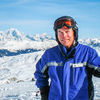Gerlach's Floating Blind Bird Photography
Jul 29, 2017 00:30:41 #
Hi Everyone!
I have been busy photographing a ton of birds on Henry's lake where I live in my floating blind and writing many assignment articles on photography. In most cases, I used my Canon 1DX Mark II with a Canon 800mm lens, but I did have a friend borrow my blind for a week and he let me use his new Canon 600mm with 1.4x extender. I like this combo better than the 800mm, so anyone want to buy a mint-condition 800mm that has never been in the water - honest? I generally use ISO 1000 or 800 in the floating blind with such a long lens, or I just won't get many sharp images and I had to microadjust the lens to -2. As you know from a previous post, I am not a big fan of auto exposure systems, especially for birds on the water as the changing size of a largely white or dark bird will throw the exposure off, and so will the reflectance of the background should it change suddenly, such as reflected light blue sky to dark green bushes along the margin of the lake. I simply balance the meter to zero, shoot a sample image to check for blinking highlights, and adjust the exposure until the first blinkies appear, and call that good. The first blinkies do not mean that area is actually overexposed in the RAW file, as the highlight alert and the histogram are both generated from a JPEG built-in to the RAW file so you can see the image. RAW has far more data than a JPEG, so you are safe if you don't overdo the blinkies.
I keep working the same area of the lake in my floating blind and the birds now know me quite well. One male ring-necked duck swims over as soon as I come by to greet me each morning, and even dives within feet of my blind for food. Roger Trentham from the Smokies is the first person to take me up on trying the blind, and I dropped him off at the airport the other day still breathing and not in a body bag. Problem is, now he must edit the 400GB's of image he shot. I will give you a tip. If you enjoy bird photography, you are missing out on a tremendous way of doing it if you aren't using a floating blind. It is fabulous beyond belief. Imagine joining a whole flock of birds, being able to move closer or back up, change shooting angles, and the birds don't pay attention to you. Awesome!
I have been busy photographing a ton of birds on Henry's lake where I live in my floating blind and writing many assignment articles on photography. In most cases, I used my Canon 1DX Mark II with a Canon 800mm lens, but I did have a friend borrow my blind for a week and he let me use his new Canon 600mm with 1.4x extender. I like this combo better than the 800mm, so anyone want to buy a mint-condition 800mm that has never been in the water - honest? I generally use ISO 1000 or 800 in the floating blind with such a long lens, or I just won't get many sharp images and I had to microadjust the lens to -2. As you know from a previous post, I am not a big fan of auto exposure systems, especially for birds on the water as the changing size of a largely white or dark bird will throw the exposure off, and so will the reflectance of the background should it change suddenly, such as reflected light blue sky to dark green bushes along the margin of the lake. I simply balance the meter to zero, shoot a sample image to check for blinking highlights, and adjust the exposure until the first blinkies appear, and call that good. The first blinkies do not mean that area is actually overexposed in the RAW file, as the highlight alert and the histogram are both generated from a JPEG built-in to the RAW file so you can see the image. RAW has far more data than a JPEG, so you are safe if you don't overdo the blinkies.
I keep working the same area of the lake in my floating blind and the birds now know me quite well. One male ring-necked duck swims over as soon as I come by to greet me each morning, and even dives within feet of my blind for food. Roger Trentham from the Smokies is the first person to take me up on trying the blind, and I dropped him off at the airport the other day still breathing and not in a body bag. Problem is, now he must edit the 400GB's of image he shot. I will give you a tip. If you enjoy bird photography, you are missing out on a tremendous way of doing it if you aren't using a floating blind. It is fabulous beyond belief. Imagine joining a whole flock of birds, being able to move closer or back up, change shooting angles, and the birds don't pay attention to you. Awesome!
Mallard on the morning of July 28
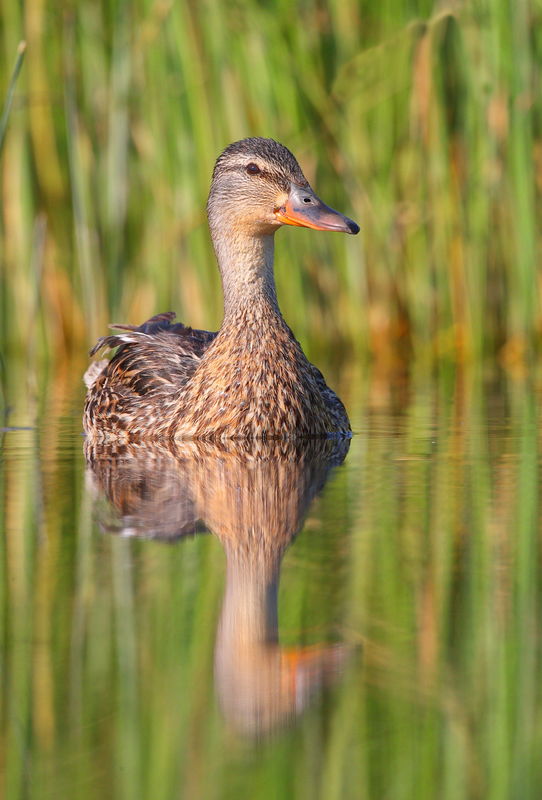
(Download)
My morning "Greeter" - the ring-necked duck
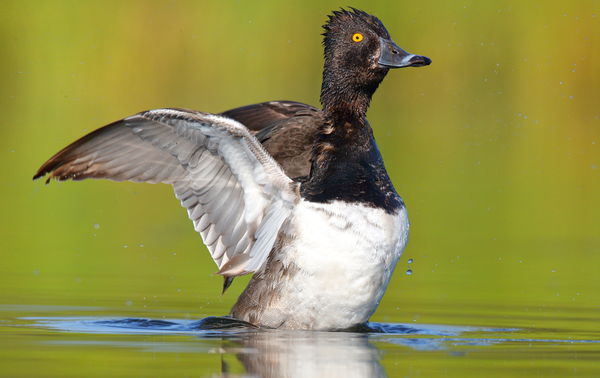
(Download)
Ring-necked splashing the water
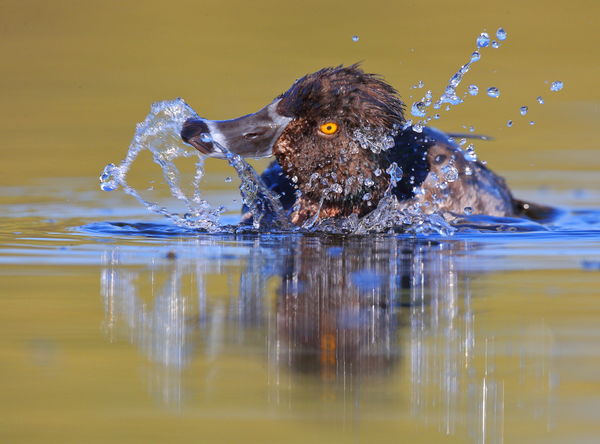
(Download)
Canvasback hen and ducklings
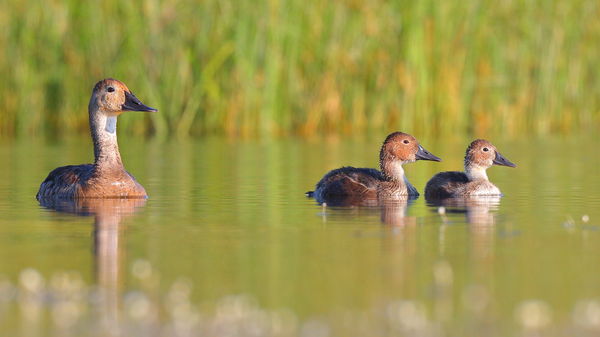
(Download)
American wigeon duckling almost grown
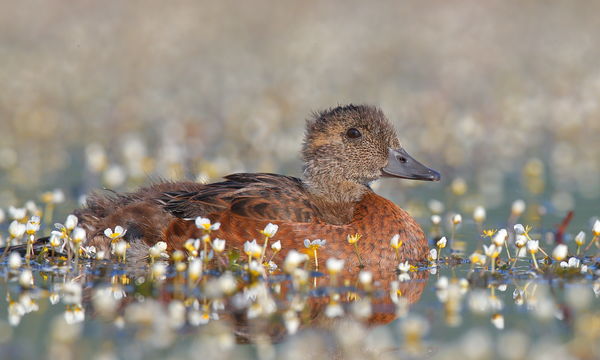
(Download)
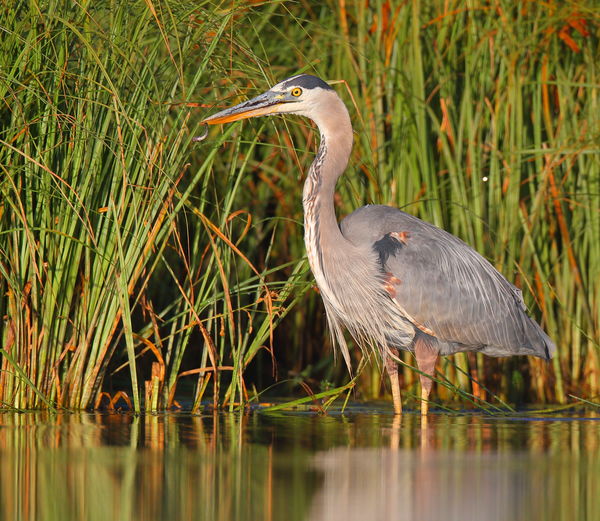
(Download)
Bufflehead family
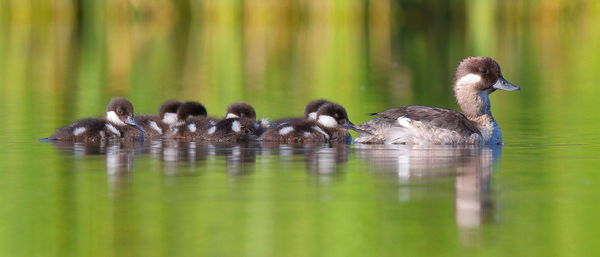
(Download)
Lesser Yellowlegs
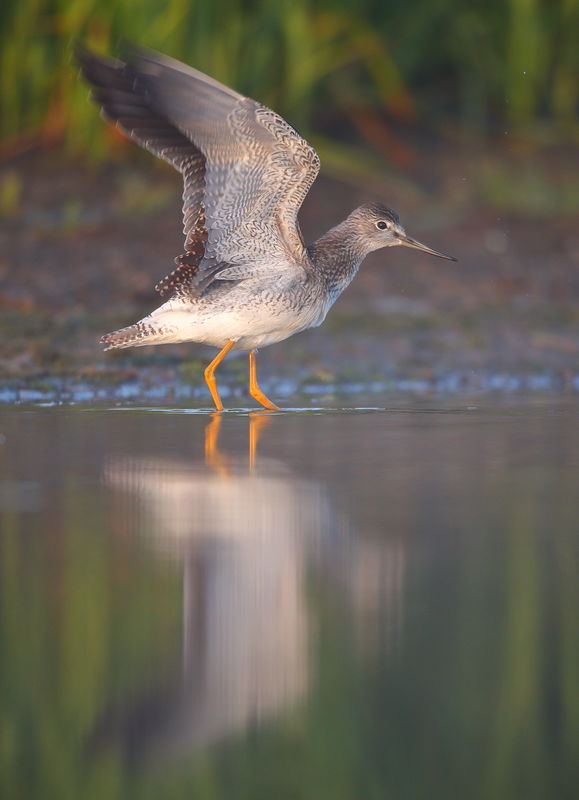
(Download)
American avocet
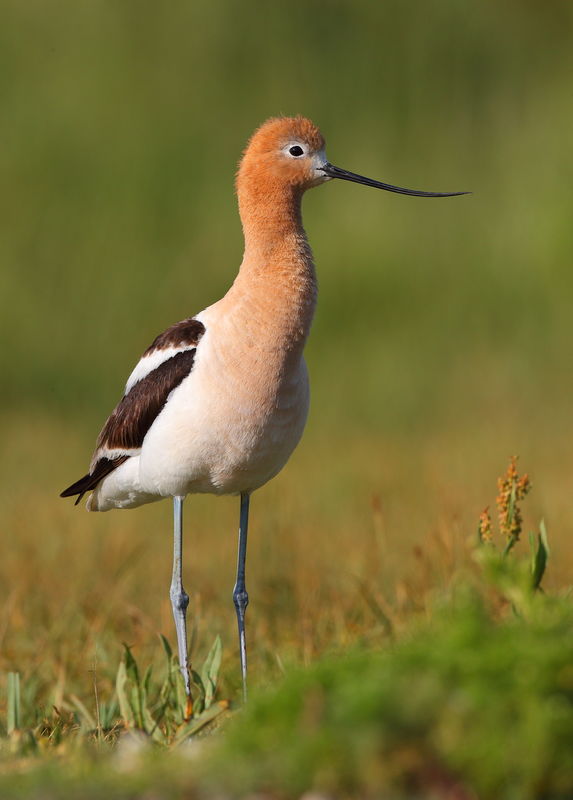
(Download)
Lesser scaup duckling "learning to fly?"
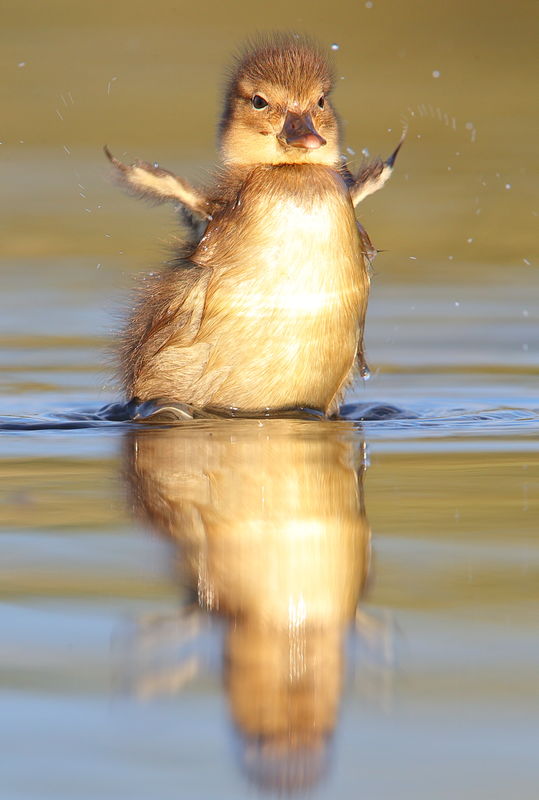
(Download)
Jul 29, 2017 00:37:59 #
A couple more things. My Outdoor Flash Photography book is now available at amazon.com and I have many other writing projects that you will find of interest. Also, I finally discovered that Canon now has some cameras that provide exposure compensation when used with manual aperture and shutter speed, but auto ISO. This gives everyone the ability to lock in both the aperture and shutter speed desired, let the ISO float to fit the situation, and now you can compensate the exposure when needed. It is an incredibly useful exposure method. Imagine photographing polar bears playing in the snow where the ambient light changes a little ever so often. Set the shutter speed you need for a sharp image, perhaps 1/500th second, set a decent aperture of f/8 for a little more depth, let the ISO adjust for the changing ambient, and perhaps set +1 FEC to keep the exposure optimum - works so well. Fortunately, both the cameras I am using offer this - the 1DX Mark II and the 5D Mark IV - about time Canon!
Jul 29, 2017 00:40:53 #
I am especially proud of my first image of a great blue heron catching a fish - and a trophy fish at that. What a lunker! You wonder how it could lift this lake monster up! I know you Florida folks get fish in the beaks of birds all the time, but we Idaho boys have to work at it.
Jul 29, 2017 00:53:46 #
Jul 29, 2017 02:04:49 #
John Gerlach wrote:
Hi Everyone! br br I have been busy photographing... (show quote)
Great set of images. You're obviously very good at what you do. I'd like to see a picture of your floating blind as I've never seen one.
Jul 29, 2017 02:18:47 #
John Gerlach wrote:
Hi Everyone! br br I have been busy photographing... (show quote)
Great bird captures. How much is your book? I'll try to check...
Update: You have several books, very cool. Close-up and landscape photography are what I do. Some possible purchases to think about. But I have so many books!
Jul 29, 2017 03:25:18 #
Jul 29, 2017 05:07:40 #
Jul 29, 2017 12:15:55 #
Jul 29, 2017 13:13:28 #
infocus wrote:
Great set of images. You're obviously very good at what you do. I'd like to see a picture of your floating blind as I've never seen one.
Roger Trentham being the model in my floating blind. Here it is without the camo cover on it.
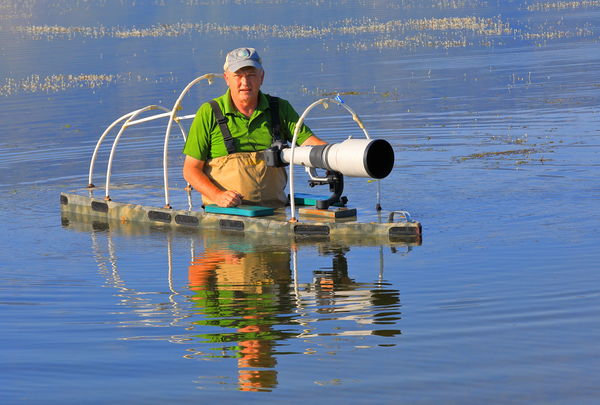
(Download)
With the camo cover on the floating blind.
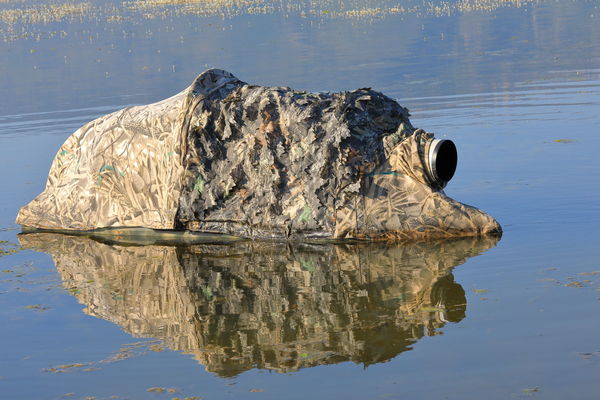
Jul 29, 2017 13:17:02 #
lamiaceae wrote:
Great bird captures. How much is your book? I'll try to check...
Update: You have several books, very cool. Close-up and landscape photography are what I do. Some possible purchases to think about. But I have so many books!
Update: You have several books, very cool. Close-up and landscape photography are what I do. Some possible purchases to think about. But I have so many books!
There are a lot of books out there, but none are like mine. The flash book is perfect for you as it is incredibly valuable to both close-up and landscapes. It is full of info you can use to greatly improve your images.
Jul 29, 2017 13:21:57 #
Jul 29, 2017 13:44:11 #
Here is a few more from this morning. I entered the lake about 20 minutes before sunrise and it stayed calm for four hours, so I shot about 5000 images of quite a few subjects.
davefales wrote:
Superb work. Ringed-neck splash is my favorite.
Canvasback kkducklings
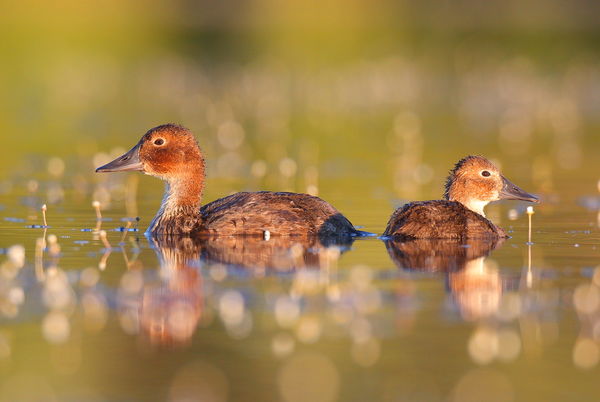
Momma Canvasback
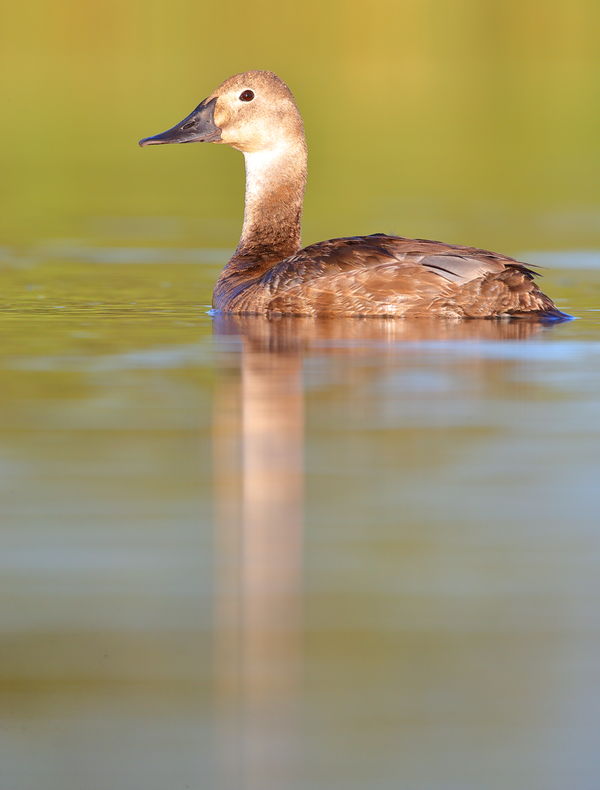
Diving canvasback
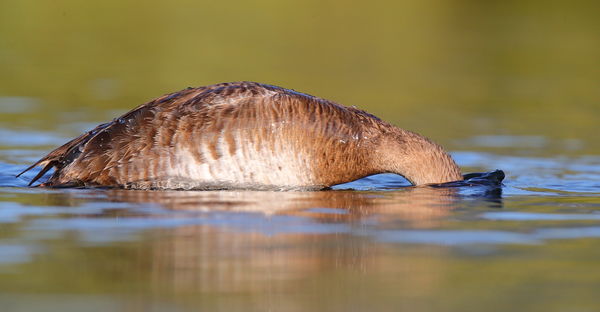
Jul 29, 2017 13:58:06 #
Hey John, that fish the blue heron is eating looks like the fish i catch. Tell me where i can purchase an autographed book. thanks. fantastic photos..
Jul 29, 2017 14:05:59 #
John Gerlach wrote:
Amazing. My feel-good story for today. Thanks for sharing.Here is a few more from this morning. I entered the lake about 20 minutes before sunrise and it stayed calm for four hours, so I shot about 5000 images of quite a few subjects.
If you want to reply, then register here. Registration is free and your account is created instantly, so you can post right away.






